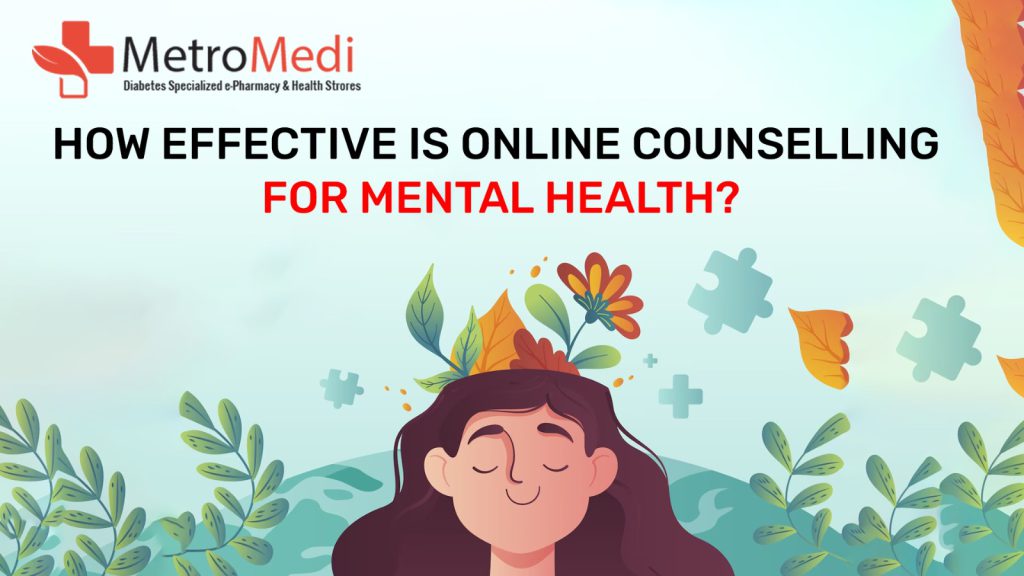
The advent of technology has revolutionized various aspects of our lives, and mental health care is no exception. Online counselling, also known as e-therapy or teletherapy, has emerged as a popular alternative to traditional face-to-face therapy. But how effective is online counselling for mental health? Let’s delve into the benefits, limitations, and overall effectiveness of this modern approach to mental health care, including online counselling for depression, online mental counselling, online counselling services, and online counselling for anxiety.
The Rise of Online Counselling
Online counselling has gained significant traction in recent years, driven by the increasing accessibility of the internet and digital devices. The COVID-19 pandemic further accelerated its adoption as many people sought mental health support from the safety of their homes. Platforms offering online counselling services, such as Better Help and Talk space, have seen a surge in users, highlighting a growing acceptance of this mode of therapy.
Benefits of Online Counselling
- Accessibility: Online counselling breaks down geographical barriers, allowing individuals in remote or underserved areas to access mental health care. This is particularly beneficial for those living in rural regions where mental health professionals may be scarce.
- Convenience: With online counselling, clients can schedule sessions at their convenience, avoiding the need to commute. This flexibility can be a game-changer for those with busy schedules or mobility issues.
- Anonymity and Comfort: Some individuals feel more comfortable discussing personal issues from the privacy of their own home. The perceived anonymity of online counselling can help reduce the stigma associated with seeking mental health support.
- Variety of Options: Online counselling services offer various modes of communication, including video calls, phone calls, and messaging. This allows clients to choose the method that best suits their comfort level and needs.
- Cost-Effectiveness: Online counselling often comes at a lower cost compared to traditional in-person therapy. This can make mental health care more affordable and accessible to a wider audience.
Effectiveness of Online Counselling
Numerous studies have examined the effectiveness of online counselling, and the results are promising. Research indicates that online counselling can be as effective as in-person therapy for a range of mental health issues, including online counselling for depression and online counselling for anxiety.
- Evidence-Based Results: A study published in the Journal of Affective Disorders found that online cognitive behavioural therapy (CBT) was equally effective as face-to-face CBT in treating depression and anxiety disorders. Participants reported significant improvements in symptoms and overall mental well-being.
- Client Satisfaction: Many clients express high levels of satisfaction with online counselling. The convenience, accessibility, and comfort of receiving therapy from home contribute to positive experiences and outcomes.
- Therapeutic Alliance: The therapeutic relationship, or alliance, between therapist and client is crucial for successful therapy. Research suggests that a strong therapeutic alliance can be established through online counselling, similar to in-person sessions. Effective communication and empathy are key components in building this relationship, regardless of the medium.
Limitations and Challenges
While online counselling offers many benefits, it is not without its challenges. Some limitations include:
- Technical Issues: Internet connectivity problems and technical glitches can disrupt sessions, potentially hindering the therapeutic process.
- Suitability: Online counselling may not be suitable for everyone. Individuals with severe mental health conditions or those in crisis may require more intensive, in-person support.
- Privacy Concerns: Ensuring confidentiality and data security is paramount in online counselling. Clients must feel confident that their personal information is protected.
- Non-Verbal Cues: In video or text-based sessions, therapists may miss non-verbal cues such as body language, which can be important for understanding a client’s emotional state.
Conclusion
Online counselling, including online counselling for depression, online mental counselling, and online counselling for anxiety, has proven to be an effective and viable option for many individuals seeking mental health support. Its accessibility, convenience, and cost-effectiveness make it an attractive alternative to traditional therapy. While it may not be suitable for everyone, for many, it provides a flexible and effective means of addressing mental health concerns. As technology continues to advance, the scope and effectiveness of onlinecounselling are likely to expand, offering even greater support to those in need.
